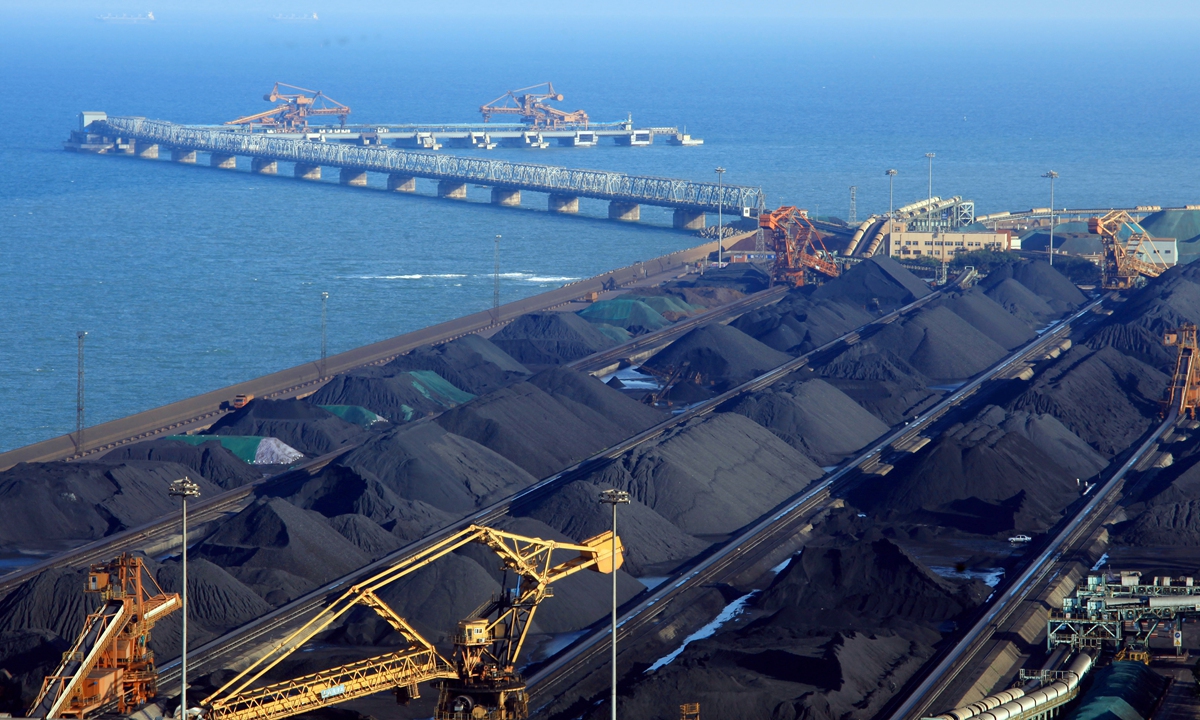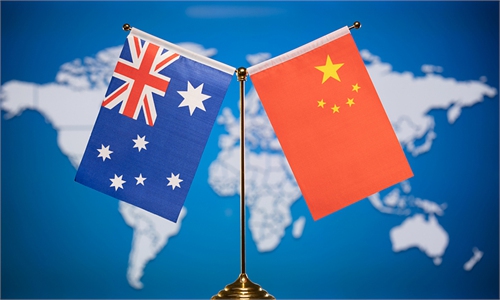Australian coal largely cleared at ports ahead of festival, but no sign of further imports

View of piles of coal on a quay in Rizhao, East China's Shandong Province Photo: cnsphoto
China's coal supplies strengthened amid the potentially rising demand ahead of the Chinese New Year holidays, with ports ramping up efforts to expand imports or clearance of coal from countries like Australia while domestic suppliers increased production capacity to further ensure adequate inventories.
Some industry insiders confirmed with the Global Times on Friday that coal imports from Australia that was stagnant at ports have largely been cleared.
"In December, Australian coal stranded at ports was cleared up, and the remaining Australian coal - could be less than 1 million tons - would also be cleaned up in January," a senior industry insider told the Global Times on condition of anonymity.
Imported Australian coal to China in 2021 was 66.37 million tons less than in 2020, a drop of more than 85 percent year-on-year, amid the disruption by the soured relations between China and Australia, the insider said, noting that last year, Australian coal imports took only around 3 percent of the 320 million-ton total imports.
Indonesian coal, which accounts for about 60 percent of China's coal imports, has improved significantly in recent weeks after the temporary trade halt in early January, while Russia's coal supply remains stable.
"Indonesia's coal mines are gradually being liberalized, with around 212 Indonesian coal mines resuming exports, accounting for about 83 percent of the country's production capacity," a senior industry insider who participated in the coal trade talk with the Indonesian authorities in early January, told the Global Times on Friday.
The rising coal trade came in line with the ramping-up efforts of the Chinese government in further ensuring the stability and adequate supplies ahead of the potentially booming demand during the Chinese New Year holidays.
The National Development and Reform Commission (NDRC) said Thursday a further effort will be in place to ensure coal supplies in the next stage, especially during the Spring Festival, with up to 500,000 tons of coal resources to be prepared on a daily basis before the Spring Festival.
While coordinating railway transportation companies to strengthen capacity support, the amount of coal transferred to Qinhuangdao Port, the major coal trading port in northern China, and other ports will also be strengthened, the NDRC said.
While there has been a rise in coal imports, major supplies will be from China's own mines, which take up to 90 percent of the total coal consumption and are relatively cheaper with lower transportation costs.
"As soon as the coal clearance is completed at ports, based on the current situation, no more Australian coal will be imported," the insider said.


